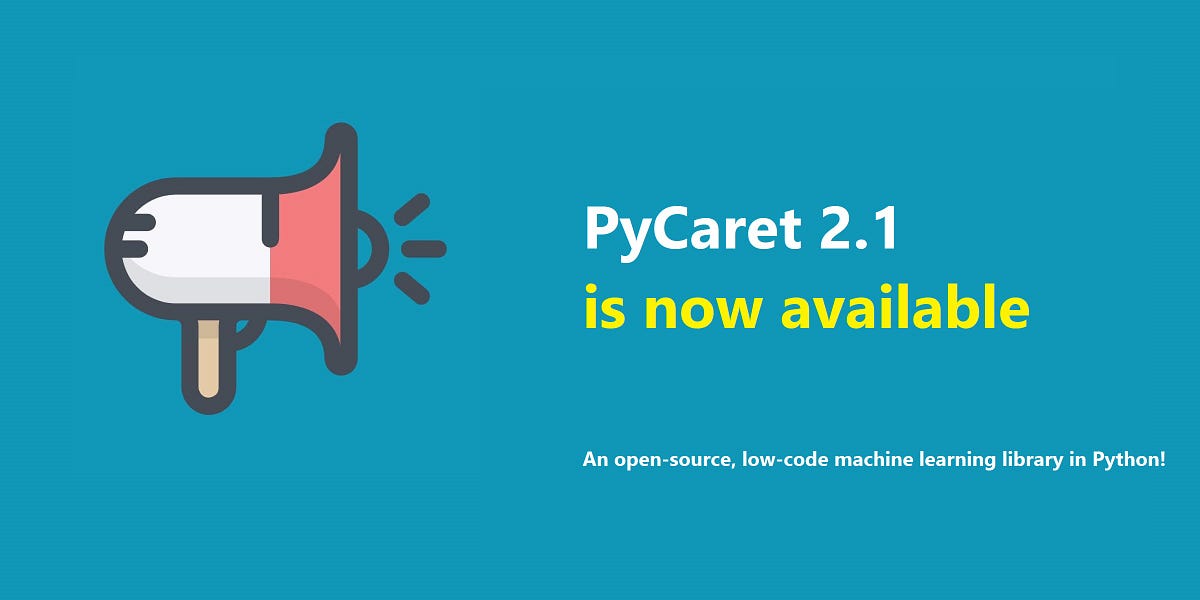We are excited to announce PyCaret 2.1 — update for the month of Aug 2020.
PyCaret is an open-source, low-code machine learning library in Python that automates the machine learning workflow. It is an end-to-end machine learning and model management tool that speeds up the machine learning experiment cycle and makes you 10x more productive.
In comparison with the other open-source machine learning libraries, PyCaret is an alternate low-code library that can be used to replace hundreds of lines of code with few words only. This makes experiments exponentially fast and efficient.
If you haven’t heard or used PyCaret before, please see our previous announcement to get started quickly.
Installing PyCaret
Installing PyCaret is very easy and takes only a few minutes. We strongly recommend using virtual environment to avoid potential conflict with other libraries. See the following example code to create a **_conda environment _**and install pycaret within that conda environment:
## create a conda environment
conda create --name yourenvname python=3.6
## activate environment
conda activate yourenvname
## install pycaret
pip install pycaret==2.1
## create notebook kernel linked with the conda environment
python -m ipykernel install --user --name yourenvname --display-name "display-name"
PyCaret 2.1 Feature Summary
Photo by Paweł Czerwiński on Unsplash
👉 Hyperparameter Tuning on GPU
In PyCaret 2.0 we have announced GPU-enabled training for certain algorithms (XGBoost, LightGBM and Catboost). What’s new in 2.1 is now you can also tune the hyperparameters of those models on GPU.
#python #data-science #artificial-intelligence #technology #machine-learning
